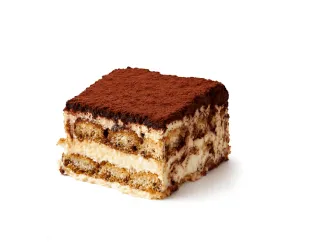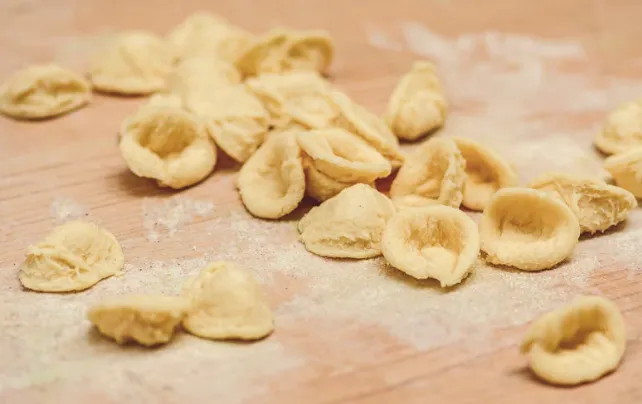 Diminutives
Diminutives
Lesson forty


Lesson thirty-nine
Indefinite adjectives and pronouns are used when referring to unspecified people or things. In English, examples include some, any, everyone, someone, and all.
In this article, you'll find a complete list of the most commonly used Italian indefinite words.
It’s important to note that double negation is permitted in the Italian language. This means that you can use the word non (not) together with niente (nothing).
Non ho comprato niente.
I haven't bought anything.
Something
Ho fame, vado a cercare qualcosa da mangiare.
I'm hungry, I'm going to look for something to eat.
C'è sempre qualcosa da fare in questa città.
There is always something to do in this city.
Lui mi sta nascondendo qualcosa.
He is hiding something from me.
Nothing
Oggi non ho nulla da fare.
Today, I have nothing to do.
A pranzo non ho mangiato nulla.
I didn't eat anything for lunch.
Non ho nulla da mettere per la festa.
I have nothing to wear for the party.
Someone
Qualcuno ci sta seguendo.
Someone is following us.
Conosci qualcuno che parli inglese?
Do you know someone who speaks English?
C'è qualcuno alla porta.
There is someone at the door.
Someone Else
Qualcun altro vuole una fetta di torta?
Does someone else want a piece of cake?
Non posso aiutarti, chiedi a qualcun altro.
I can't help you, ask someone else.
No One
Non conosco nessuno in questa città.
I don't know anyone in this city.
Non ho rivelato il tuo segreto a nessuno.
I haven’t told anyone your secret.
Non c'è nessuno in questo posto.
There is no one in this place.
Nessuno sapeva la risposta alla domanda.
No one knew the answer to the question.
When used before a noun, nessuno drops the final o, except when the following word starts with certain sounds: s + consonant, cn, gn, pn, ps, x, or z.
Non c'è nessun dubbio.
There is no doubt.
Non ho nessun amico.
I have no friends.
Before feminine nouns beginning with a vowel, nessuno drops the final o and adds an apostrophe.
Non avevo nessun'amica quando mi sono trasferita qui.
I didn’t have any friends when I moved here.
Everywhere
Ovunque ci sono monumenti in questa città.
Everywhere there are monuments in this city.
Lei viaggia molto, è stata dappertutto.
She travels a lot, she has been everywhere.
Ho cercato ovunque ma non trovo il mio telefono.
I have searched everywhere, but I can't find my phone.
Somewhere
Vai da qualche parte questo fine settimana?
Are you going somewhere this weekend?
Ho perso il portafoglio da qualche parte.
I lost my wallet somewhere.
Ho già visto quella persona da qualche parte.
I have already seen that person somewhere.
Nowhere
Non riesco a trovare le chiavi da nessuna parte.
I can't find the keys anywhere.
Quest'estate non vado da nessuna parte.
I'm not going anywhere this summer.
Non riesco a studiare da nessuna parte a casa mia.
I can't study anywhere in my house.
Few / Little
Ci sono pochi mobili in questa casa.
There are few furniture in this house.
Ho poco tempo in questi giorni.
I have little time these days.
Conosco poche persone qui.
I know few people here.
Many / Very
C'era molta gente alla festa.
There were many people at the party.
Ho molte cose da fare in questo momento.
I have many things to do right now.
Sofia ha molti vestiti.
Sofia has many clothes.
Silvia è molto bella.
Silvia is very beautiful.
Quite a few / Quite a lot
C'era parecchia gente alla festa.
There were quite a few people at the party.
Ho parecchie cose da fare in questo momento.
I have quite a few things to do right now.
La ferita alla gamba mi fa parecchio male.
The wound on my leg hurts quite a lot.
Very (Intensifier)
Una ragazza bellissima.
A very beautiful girl.
Un ragazzo bellissimo.
A very handsome boy.
Dei ragazzi bellissimi.
Some very handsome boys.
Delle ragazze bellissime.
Some very beautiful girls.
A Lot / Much / Many
Ci sono tanti fiori nel giardino.
There are many flowers in the garden.
Lei ha tanti amici.
She has many friends.
Ho tante cose da fare in questo momento.
I have many things to do right now.
C'erano tante persone al concerto.
There were many people at the concert.
Il mal di testa mi fa tanto male.
The headache hurts me a lot.
Oggi ho lavorato tanto.
Today I worked a lot.
Non invitarla, tanto non viene.
Don’t invite her, she won’t come anyway.
Too Much / Too Many
Ho mangiato troppo cibo a cena.
I ate too much food for dinner.
Ho troppe cose da fare per poter uscire coi miei amici.
I have too many things to do to go out with my friends.
Questo appartamento è troppo costoso.
This apartment is too expensive.
Ieri stavo troppo male per andare a lavorare.
Yesterday, I was too unwell to go to work.
Oggi fa troppo caldo per uscire.
Today, it is too hot to go out.
Everything / All / Whole
Ho lavorato tutto il giorno.
I worked all day.
Tutte le mie amiche sono fidanzate.
All my female friends are in relationships.
Tutti i posti sono occupati.
All the seats are occupied.
Ti ho detto tutto quello che so.
I’ve told you everything I know.
La pizza piace a tutti.
Everyone likes pizza.
Some
Ho alcune notizie da darti.
I have some news to tell you.
Ho buttato alcuni vestiti che non metto più.
I threw away some clothes that I no longer wear.
Ci sono alcuni errori in questo testo.
There are some mistakes in this text.
Any (with Singular Nouns)
Ho parlato con lei qualche settimana fa.
I spoke with her a few weeks ago.
Hai letto qualche bel libro ultimamente?
Have you read any good books lately?
Ho bisogno di qualche giorno di riposo.
I need a few days of rest.
Whatever
Voglio comprare queste scarpe qualunque sia il prezzo.
I want to buy these shoes, whatever the price.
Qualunque cosa tu scelga, io ti sosterrò.
Whatever you choose, I will support you.
Farei qualunque cosa per te.
I would do anything for you.
Each
Abbiamo mangiato una fetta di pizza ciascuno.
We each ate a slice of pizza.
Ciascuno di noi ha contribuito al progetto.
Each of us contributed to the project.
Ciascuno di noi ha le proprie opinioni.
Each of us has our own opinions.
Each (before a noun)
Ciascun alunno deve consegnare il compito.
Each student must hand in the assignment.
Each / Everyone
Ognuno dei figli ha ricevuto una parte dell'eredità.
Each of the children received a share of the inheritance.
Ognuno di noi ha contribuito al progetto.
Each of us contributed to the project.
Ognuno di noi ha le proprie opinioni.
Each of us has their own opinions.
Anyone
Chiunque può partecipare alla gara.
Anyone can participate in the competition.
Chiunque può sbagliare.
Anyone can make a mistake.
Chiunque vorrebbe avere una casa così.
Anyone would like to have a house like this.
Every
Bevo una tazza di caffè ogni mattina.
I drink a cup of coffee every morning.
Vado a correre ogni giorno.
I go for a run every day.
Ogni volta che guardo questo film piango.
Every time I watch this movie, I cry.
Another / Other / Last
Ci incontreremo un'altra volta.
We will meet another time.
Vuoi un altro pezzo di pizza?
Do you want another piece of pizza?
Ho ordinato un'altra bottiglia di vino.
I ordered another bottle of wine.
Ho guardato un altro episodio.
I watched another episode.
L'altro giorno ho visto Fabrizio.
The other day, I saw Fabrizio.
L'altra sera ho visto un bel film.
The other evening, I saw a good movie.
 Diminutives
Diminutives
Lesson forty
 Relative pronouns
Relative pronouns
Lesson forty-one
 Pronoun ne
Pronoun ne
Lesson forty-two
 Pronoun ci
Pronoun ci
Lesson forty-three
 Pronoun si
Pronoun si
Lesson forty-four
 Subjunctive mood
Subjunctive mood
Lesson forty-five